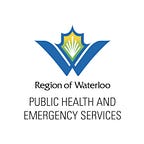Revisiting Kathy
In the early part of 2020, before the world shut down due to COVID-19, Kathy made the decision that it was time to retire from her role in Public Health after 33 years as a Public Health Nurse.
For Kathy, retirement meant moving on to a different role and it was the years of working in Harm Reduction that led her to a job “on the frontlines” as a Hep C Nurse with Sanguen Health Centre.
Kathy’s first day in her new role was in early March 2020. The world was already starting to change, in light of the pandemic, but for Kathy and her colleagues, the need of the ‘folks’ that they serve was much greater. To them it was necessary to keep bringing life-saving services to the community through the Primary Care Bus.
“I was on the bus for one week and then everything changed with COVID. We were pulled off the road for a week to refocus and figure out what we were going to do moving forward. Then we dove into making sure that our folks stayed healthy and got the education they needed about COVID-19 in a way that works for them. This meant that we had to go where folks are at and so our bus stops have changed drastically as people have spread out during COVID. Things evolve each day. It has been really hard for those that are experiencing homelessness or marginally housed and for those living in encampments.”
As difficult as the challenges of COVID-19 have been on Kathy, and the team, she acknowledges that nothing compares to the challenges that the pandemic has created for her clients, “COVID has been really difficult on the people we serve. Problematic substance users, people struggling with mental health, and those in marginalized housing for example — it’s been very difficult for them.”
In terms of overdoses and problematic substance use in the community, COVID-19 has made things worse in Kathy’s view, “The substances that are out there are much more potent. The whole drug supply is impacted, which has increased overdoses in our community.” According to Kathy the change in drug supply along with the isolation that the pandemic has caused has resulted in some very alarming impacts. “What’s happening on the ground is that our folks are becoming their own community and they are having to look out for one another.”
As much as COVID-19 has been a necessary focus, Kathy is glad that we are taking time to acknowledge International Overdose Awareness Day and thinks it’s very important to keep talking about overdose and problematic substance use. “It has been a real worry for me. Not just the overdose piece but the impact overall on the health of the people we see when out on the Mobile Bus. People aren’t able to access services as easily due to COVID -19 and we know we’ve lost people from our community because of it. We still have to work on breaking down the stigma attached to substance use, break down barriers for people to access health care and the services that they need.”
‘Support, not stigma!’ is a message that Kathy and many of her colleagues wear on t-shirts and is also an important reminder of one of the biggest barriers in the community when it comes to preventing overdoses. “Treat people with compassion and like a human being. Overdoses are very real. They are a health issue and they can happen to anybody from a son or daughter, a parent, someone’s cousin or neighbour. Stigma is often why people don’t call 911. We need to stop the ‘them and us’ mentality and work together as a community.”
Thanks to Kathy for continuing to do this important work on the frontlines!
For more information about services and supports available — visit the WRIDS website.
Read the first profile of Kathy from 2017.
